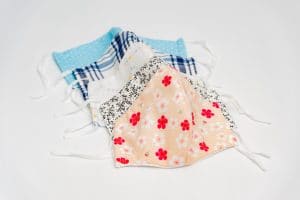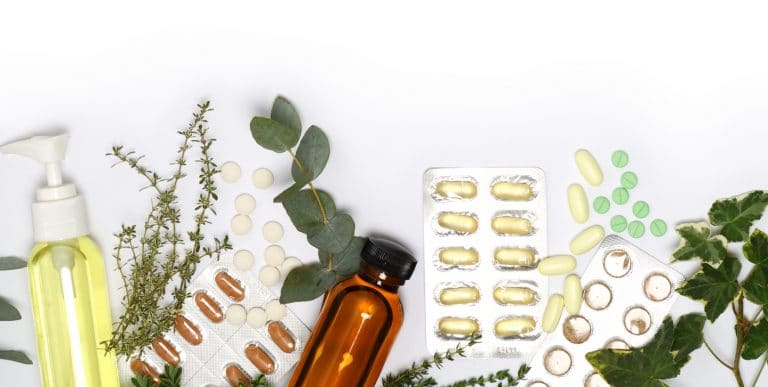Could the copywriting on your website, product packaging or other marketing material land you in hot water with the TGA? It could if you’re making unsubstantiated claims about therapeutic benefits.
For businesses, the ‘covid years’ were ones of confusion, fast learning, and pivoting. For some that pivot meant stepping into unfamiliar territory – and more than a few businesses fell foul of the Therapeutic Goods Administration (TGA) for making unsubstantiated claims in the copywriting that promotes or describes their product.

But it’s not a new issue. If you’re developing or marketing any type of product you believe has therapeutic benefits, it’s important to understand the requirements around claiming and describing those benefits – and make sure that any copywriting services you engage understand them too!
This article looks at the Therapeutic Goods Administration (TGA), the government organisation tasked with monitoring therapeutic claims. It examines the TGA’s definition of therapeutic products, the rules that govern their advertising, and the penalties for advertising therapeutic benefits without TGA approval. Let’s dive in.
What is the TGA and what do they do?
The TGA is part of the Australian Government Department of Health. Its job is to approve and regulate the manufacturing, sale and advertising of:
“Products for use in humans in connection with: preventing, diagnosing, curing or alleviating a disease, ailment, defect or injury and influencing, inhibiting or modifying a physiological process.”
This includes prescription medicines, vitamins and minerals, and medical devices. Complementary medicines, like Valerian or Evening Primrose Oil require TGA oversight since they are advertised as having a therapeutic benefit.
If you are advertising cosmetics, these are not considered therapeutic and typically do not need TGA approval – unless you are claiming your product has a therapeutic benefit.
However, cosmetics are subject to other standards and advertising rules.
Advertising a therapeutic benefit
Many people incorrectly assume that only medicines and health supplements require TGA approval. But advertising is all about the claims you make for a product, so it can relate to a range of products from air purifiers and face masks to complementary medicines.
If a business advertises its dried garlic for cooking, that makes the product a food, and so it does not need TGA approval (although it is subject to other government regulations).
But if the copy on the product packaging, label, website or on other marketing material says that the product is beneficial for preventing cold and flu, that becomes a therapeutic claim.
Does that mean you can’t make any claims about your product’s therapeutic benefits? Not necessarily – but if you plan to, you’ll need to apply for TGA approval before you do, and you should have evidence to back up your claims.

The TGA approval process
When a business wants TGA approval for a product, they need to apply online. The TGA will look for proof of the product’s
- Quality;
- Safety; and
- Efficacy or performance.
For many products that are considered ‘low risk’ the TGA will not require proof of efficacy (i.e. that it works) prior to approval. However, at any time the TGA may require the product sponsor to produce the evidence backing its product claims.
When a product has TGA approval, it goes on the ARTG – the Australian Register of Therapeutic Goods. Any product listed in the ARTG can be lawfully advertised and sold for its therapeutic benefits.
Proving advertising claims
The person who manufactures, imports/exports, sells or advertises a therapeutic product (the ‘product sponsor’) must certify that they hold evidence to support any claims made about the product.
Established products, like Vitamins B1, have a wealth of scientific research supporting their therapeutic benefits. However, if a product is new and does not have the backing of scientific evidence to show its therapeutic benefits, advertising material needs to be carefully written so that no unsubstantiated claims are made.

Penalties for non-compliance
The penalties for not complying with TGA regulations can range from a written warning to fines and even criminal prosecution.
To begin with, an advertiser may be asked to amend the advertising to ensure compliance with the relevant therapeutic goods advertising requirements and respond to the TGA within a specified timeframe. Substantiation notices are issued to request information to establish the person responsible for an advertisement or to obtain information to substantiate claims made in an advertisement.
The TGA can ask the Health Department to issue non-compliance and infringement notices if the advertiser has not responded to previous requests for information.
If the advertiser is convicted by a court for advertising non-compliance, the penalty can be imprisonment for 5 years or 4,000 penalty units ($840,000 in FY 2020-21), or both, if it can be shown that the product has resulted in, will result in, or is likely to result in, harm or injury to any person.
Recent examples
Apart from potential fines and imprisonment, the risk to a business’s reputation is another reason to be aware of obligations under TGA regulations.
Recently, activewear retailer Lorna Jane was fined $39,960 after advertising a clothing line as being “anti-virus”. The TGA issued three infringement notices for alleged unlawful advertising in relation to COVID-19. Lorna Jane claimed the brand’s LJ Shield technology was a “chemical-free treatment that when applied to activewear, protects wearers against viruses and bacteria”.
Manufacturers of air filtering devices like face masks also must be aware of their claims. According to the ABC, the TGA has issued 58 fines during the pandemic for products that claim to prevent or cure COVID-19.
In May the TGA issued four infringement notices totalling $50,400 to a Brisbane-based company for allegedly advertising on a website a medicine containing hydrogen peroxide for internal therapeutic use.
While the TGA does its own investigations to check that businesses are compliant, tip offs from consumers can result in product recalls, infringement notices and fines.
Further information
The TGA exists to protect the public from harmful or misleading products. But it’s also about helping businesses provide safe, scientifically tested therapeutic products to their customers.
A good starting point for finding out more is the TGA’s ‘SME Assist’ guide. You can email your business queries to [email protected] or call 1800 020 653.
In the meantime, if you’re creating website content or other marketing material and need an experienced article writing service or content marketing agency in Australia that understands the need to avoid unsubstantiated claims in the copy, contact us!





